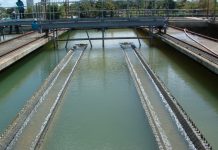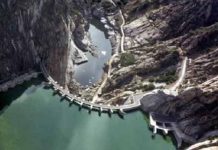
ISLAMABAD: Pakistan’s first National Water Policy has been approved by the Council of Common Interests (CCI) on Tuesday with the consensus of all the provinces.
Also, a charter imposing a water emergency in Pakistan was also signed in the CCI meeting and the 37th meeting was presided by the Prime Minister Shahid Khaqan Abbasi in presence of all four provincial chief ministers, reported Express Tribune.
The Pakistan Water Charter signed with the consensus of all four provinces envisages increasing efforts for fighting the forthcoming water crisis.
The draft NWP signed on Tuesday includes the pricing of water at the delivery end. For environmental and ecological requirements, water supply would have to be free of cost.
A rise in development budget for water resources has been envisaged from existing 3.7 percent to 10 percent by 2019 and 20 percent by the year 2030.
NWP will oversee the setting-up of a new groundwater authority to guarantee transparency and sustainability.
To enable monitoring of real-time data, information-technology based monitoring at every redirection point from every river and reservoirs will be introduced.
The main prerogative of the NWP is to take note of the imminent water shortage and give detailed specifications in this regard.
The NWP policy had remained in limbo since 2005 and has remain unimplemented till its approval on Tuesday.
Sartaj Aziz, Planning Commission’s Deputy Chairman apprising the CCI about the main characteristics of the NWP which include allotment of water priorities and uses, integrated planning for development and utilization of water resources.
The NWP mentioned regarding the influence of climate change, environmental integrity of the basin, trans-boundary water sharing, rain-fed agriculture, drinking water, sanitation, groundwater and hydropower.
NWP envisages its measures will be executed via the national level body, the National Water Council to be headed by the Prime Minister and constituting of all four provincial chief ministers and ministers for power, finance, planning development and water resources.





